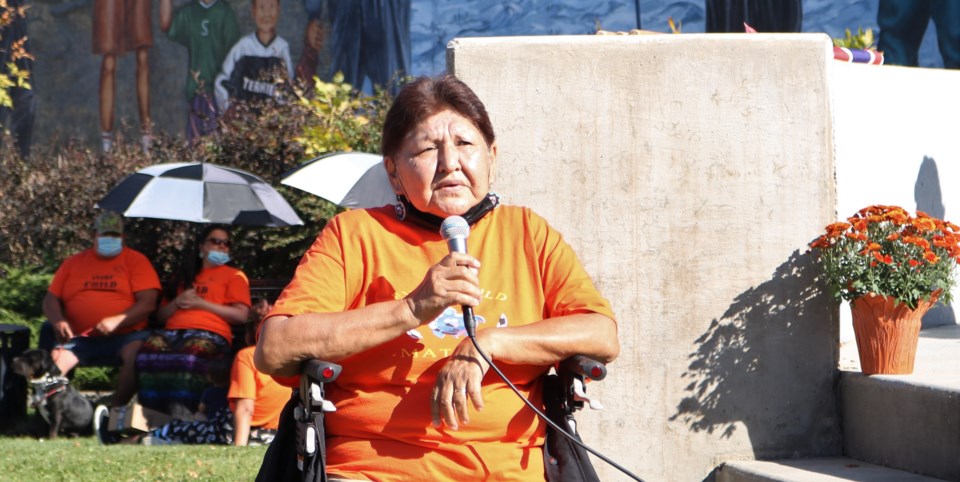YORKTON - It is important that the truth about Indian Residential Schools is finally shared.
That was one of the messages those gathered at the National Day for Truth and Reconciliation in Yorkton Thursday heard from speaker Brenda Kakahaway.
“When you bring out the truth, the truth sets you free,” she said.
While Kakahaway attended the St. Phillips Indian Residential School, she was not a resident, attending classes daily but going home at night.
But being a ‘day schooler’ still meant being exposed to racism and bullying.
Often it was kids bullying other kids.
“There comes a day when you have to face your bullies,” she said.
Yet, when she ended up at residence in Lebret Kakahaway called it “a good experience.” She said she was good academically and at sports and that made her experience better.
“If you were good at something you weren’t really bothered,” she said.
At home though the impact of residential school abuse was more keenly felt, as both Kakahaway’s parents were survivors.
Her father attended the residential school in Birtle, MB.
“It was not a good experience for him,” she said, adding “I only learned all that later in life.”
And her mother too faced abuse, but Kakahaway said she does not have the right to speak about the abuse of another.
“Residential schools did damage to my parents too. Mother and Dad, they drank,” she said.
But, they did try.
“Another thing they helped me in my journey was my language,” said Kakahaway.
However, with her parents struggling with the role, Kakahaway too found parenting difficult.
“As a parent I was not a good parent,” she said, adding she too ended up drinking. “Alcohol was my downfall.”
Today though, there are supports to help people deal with the effects of the abuse of residential schools, said Kakahaway.
“You just have to go out and seek it,” she said.






